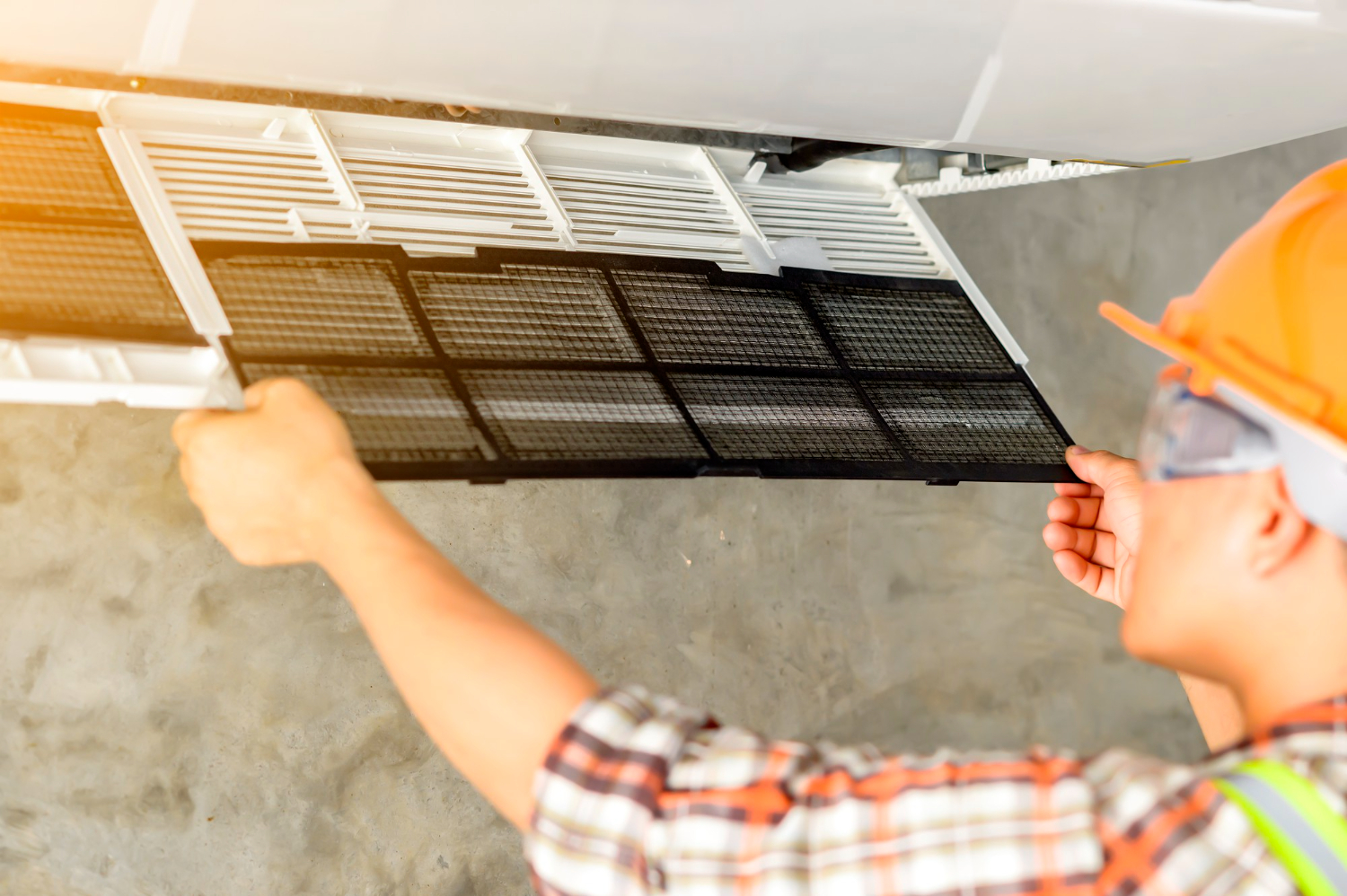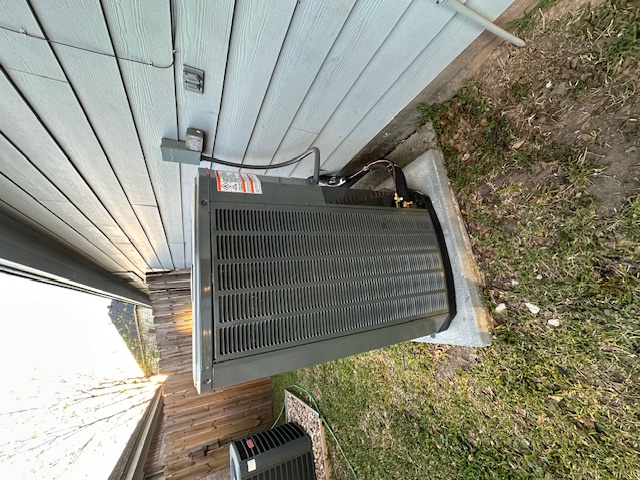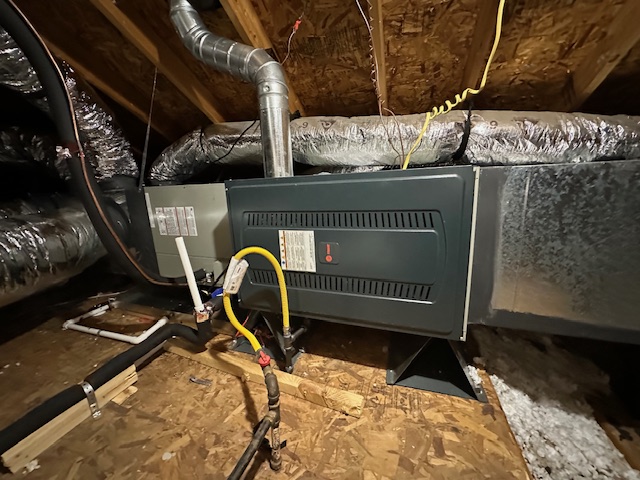Air filtration systems play a huge role in our daily lives, often without us noticing. From the car we drive to the homes we live in, these simple devices silently work to keep our air clean. But do they really make a significant difference?
A clean air filter can improve gas mileage by up to 10% in vehicles, while proper home air filters can dramatically reduce dust, allergens, and other particles in indoor spaces.
The right filter makes all the difference in performance and efficiency. For diesel engines, high-performance air filters increase power through better air intake and improved filtration. In homes, correctly sized filters (like common dimensions 20"x20"x1" or 16"x25"x1") ensure your HVAC system runs smoothly. Using the wrong size can lead to poor filtration or system strain.
What's interesting is that air filters actually improve with use - to a point. As dust collects on the filter surface, filtration efficiency increases. This means your filter gets better at its job before it eventually becomes too clogged and needs replacement.
For households with pets or high dust levels, regular filter maintenance can significantly extend the life of your HVAC system while keeping your air cleaner.
In this article, you’ll learn how air filtration systems improve indoor air quality by removing allergens, pollutants, and harmful particles from your home.
Let’s break down the key points you should consider:
- What do air filtration systems actually do?
- Signs your home may need better air filtration
- Comparing air filtration methods
- Professional air filtration solutions for Houston homes
Good reading!
What do air filtration systems actually do?
Air filtration systems work to clean the air we breathe by removing harmful particles and contaminants. They protect both our health and our HVAC equipment through various filtering mechanisms.
The difference between air purifiers and filtration systems
Air purifiers and filtration systems both clean indoor air, but they work differently. Air purifiers are standalone units that typically use a combination of filters and sometimes UV light or ionization to clean air in a specific area.
Filtration systems, on the other hand, are usually integrated into HVAC systems. They clean air throughout the entire home or building as it passes through the heating and cooling system.
The primary difference is scope and installation. Air purifiers handle smaller spaces and can be moved around. Filtration systems are permanent installations that work with your existing HVAC to clean all the air in your home.
Both options improve indoor air quality, but whole-home filtration systems generally provide more comprehensive coverage.
What gets removed from your air: Dust, dander, allergens, mold
Quality air filtration systems capture a wide range of harmful particles:
- Dust and dirt particles: These can aggravate respiratory conditions
- Pet dander: A common allergen that causes reactions in many people
- Pollen and other allergens: Seasonal triggers that cause sneezing and congestion
- Mold spores: These can cause serious health issues if left unchecked
- Bacteria and some viruses: Depending on filter quality
The effectiveness depends on the filter's MERV (Minimum Efficiency Reporting Value) rating. Higher MERV ratings catch smaller particles, with HEPA filters catching 99.97% of particles as small as 0.3 microns.
According to the U.S. Environmental Protection Agency, properly installed MERV 13 filters can remove up to 85% of airborne particles between 1 and 3 microns, including allergens, mold spores, and fine dust, making them a strong option for improving indoor air quality.
Many people notice reduced allergy symptoms and better overall health after installing proper air filtration.
How filtration integrates with your existing HVAC
Air filtration systems work with your existing HVAC equipment by installing at key points in the airflow path. The most common location is between the return air duct and the air handler.
When your system runs, air passes through the filter before being heated or cooled. This protects your equipment from dust buildup while cleaning your air.
It's important to note that while air filters improve air quality, their primary purpose in many HVAC systems is actually to protect the equipment. Higher-quality filters provide both equipment protection and health benefits.
According to ENERGY STAR, upgrading from a basic fiberglass filter to a pleated MERV 11–13 model can improve HVAC system efficiency by 15–20%, potentially lowering energy bills while enhancing air quality.
Filter maintenance is crucial. Clogged filters restrict airflow, forcing your system to work harder and use more energy. We recommend checking filters monthly and replacing them according to manufacturer guidelines.
Signs your home may need better air filtration
Your home's air quality directly impacts your health and comfort. Recognizing when filtration improvements are needed can prevent many respiratory issues and create a cleaner living environment.
Allergies or asthma flare-ups indoors
If family members experience more frequent sneezing, coughing, or asthma symptoms at home than elsewhere, your air filtration system may be inadequate. Indoor allergens like dust mites, pollen, and pet dander can accumulate when filters aren't capturing these particles effectively.
Many people notice worse symptoms in the morning or after the HVAC system cycles on. This timing suggests that allergens are being circulated through your home.
We recommend tracking when symptoms occur to identify patterns. If allergies or asthma improve when away from home but worsen upon return, this strongly indicates your home's air quality needs attention.
Upgrading to HEPA filters can trap particles as small as 0.3 microns, capturing up to 99.97% of airborne allergens that standard filters miss.
Persistent dust buildup
Excessive dust that quickly returns after cleaning points to filtration problems. When you notice dust collecting on surfaces within 1-2 days after cleaning, your current air filter may be clogged or insufficient.
Look for these specific signs:
- Dust rings around air vents
- Visible dust particles floating in sunbeams
- Gray film developing on electronics and furniture
- Increased need to change or clean return air filters
Dust accumulation isn't just a cleaning nuisance—it indicates that particulates are circulating through your living space instead of being captured by your filtration system.
Check your air filter monthly. If it appears gray or black within 30 days of installation, you likely need a higher-quality filter or more frequent replacements.
Odors, stale air, or humidity issues
Persistent odors or stale air often indicate poor air circulation and filtration. Cooking smells that linger for days, pet odors that seem permanent, or a generally musty atmosphere suggest your current system isn't properly cleaning the air.
High indoor humidity (above 50%) creates the perfect environment for mold growth. Signs include:
- Condensation on windows
- Damp feeling in the air
- Musty smells, especially in basements or bathrooms
- Visible mold spots in humid areas
If your home feels stuffy even when the HVAC system is running, air may not be properly circulating through your filtration system. This stagnation allows pollutants to remain suspended in your indoor air.
We find that activated carbon filters excel at removing odors and volatile organic compounds that standard filters miss.
Recent renovations or new pets
Home renovations release significant amounts of particulates and chemicals into your air. Construction dust, paint fumes, and adhesive gases can linger for months without adequate filtration.
After renovations, watch for:
- Fine dust on surfaces
- Chemical or "new" smells that persist
- Increased respiratory irritation
- Visible particles in the air
Adding new pets introduces additional dander, fur, and odors to your home environment. Standard filters often can't handle this increased burden.
Pet owners should look for specialized filters with antimicrobial treatments that prevent bacteria growth on captured pet dander and hair. These filters typically need replacement every 60 days rather than the standard 90 days.
We recommend temporarily upgrading your filtration during and after renovations, then assessing whether to maintain that level permanently based on your household's sensitivity.
Comparing air filtration methods
When choosing an air filtration system, it's important to understand the strengths and limitations of different technologies. Several methods exist to clean indoor air, each with specific advantages for removing particles, allergens, and pollutants.
MERV Filters vs HEPA Filters
MERV (Minimum Efficiency Reporting Value) filters are rated on a scale of 1-20, with higher numbers indicating better filtration. Most home HVAC systems use MERV 8-13 filters, which capture dust, pollen, and some bacteria.
HEPA (High Efficiency Particulate Air) filters are more powerful, trapping at least 99.97% of particles as small as 0.3 microns. This includes most allergens, mold spores, bacteria, and some viruses.
The main differences:
- Filtration level: HEPA filters capture smaller particles than standard MERV filters
- System compatibility: MERV filters work with most HVAC systems, while HEPA filters may require special installation
- Cost: HEPA systems typically cost more to purchase and maintain
- Airflow: Higher MERV ratings can restrict airflow, potentially straining your HVAC system
For severe allergies or asthma, HEPA filtration offers superior protection despite the higher cost.
Whole-home systems vs portable units
Whole-home filtration systems connect directly to your HVAC system, cleaning air throughout the entire house. They operate silently in the background, require less frequent filter changes, and stay hidden from view.
Portable air purifiers clean specific areas and can be moved between rooms. They're ideal for apartments, rentals, or targeting specific problem areas like bedrooms or living rooms.
Key considerations:
- Coverage area: Whole-home systems clean all rooms; portables typically cover 300-900 square feet
- Installation: Whole-home systems require professional installation; portables simply plug in
- Initial cost: Whole-home systems cost $1,000-$5,000 installed; quality portables range from $100-$700
- Maintenance: Both require regular filter replacements, but whole-home filters typically last 6-12 months versus 3-6 months for portables
We recommend portable units for renters or those with limited budgets, and whole-home solutions for homeowners seeking comprehensive coverage.
Smart filters and maintenance alerts
Modern air filtration systems now include smart technology that monitors air quality and filter condition. These advanced systems can:
- Display real-time air quality readings on smartphone apps
- Automatically adjust fan speeds based on detected pollutants
- Send alerts when filters need replacement
- Track historical air quality data to identify patterns
Smart filters typically connect via WiFi and integrate with home automation systems like Amazon Alexa or Google Home. Some models even include geofencing to activate when you're home and conserve energy when you're away.
The primary benefit is consistent air quality without constant manual adjustments. The systems learn your home's patterns and adapt accordingly. Though they cost 25-50% more than standard systems, many users find the convenience and optimization worth the investment.
Common mistakes that reduce air quality
Many homeowners unintentionally compromise their air filtration systems through simple oversights. Avoiding these common errors can significantly improve performance:
Incorrect filter size or installation. Even small gaps allow air to bypass the filter. Measure carefully and check for proper fit with no visible spaces around edges.
Neglecting regular replacements. Clogged filters restrict airflow and force systems to work harder. Set calendar reminders or use smart systems with alerts.
Choosing filters based solely on price. The cheapest options often provide minimal filtration. We recommend balancing cost with appropriate MERV ratings for your needs.
Blocking air returns or vents. Furniture or drapes covering vents prevent proper circulation. Maintain at least 6-12 inches of clearance around all vents and returns.
Ignoring humidity levels. Air that's too dry or humid creates ideal conditions for different pollutants. Maintain 30-50% humidity for optimal air quality and filtration effectiveness.
Professional air filtration solutions for Houston homes
Houston homeowners face unique air quality challenges due to our climate and urban environment. Professional air filtration systems offer targeted solutions that address these specific concerns while integrating seamlessly with existing home systems.
Tailored solutions for allergies, humidity, and air balance
Houston's environment creates perfect conditions for allergens like pollen, mold spores, and dust mites. We design filtration solutions specifically for these local challenges. For allergy sufferers, HEPA filtration systems can remove 99.97% of airborne particles, providing significant relief.
Humidity control is equally important in our climate. Excess moisture creates perfect conditions for mold growth and dust mite proliferation. Our systems can work alongside dehumidifiers to maintain optimal humidity levels between 30-50%.
We also focus on air balance throughout your home. This ensures proper distribution of filtered air to all rooms, eliminating stagnant areas where pollutants can accumulate.
Our assessment process identifies your specific needs by measuring:
- Current particulate levels
- Humidity percentages
- Air exchange rates
- Pressure differentials between rooms
Compatibility with your existing HVAC system
We design filtration solutions that integrate seamlessly with your current HVAC setup. This approach maximizes efficiency while minimizing installation disruption and costs.
Our technicians evaluate your existing system's capabilities to determine the most compatible filtration options. Some homes benefit from basic media filters, while others require more advanced electronic air cleaners or UV purification systems.
System compatibility factors we assess include:
- Air handler capacity
- Ductwork configuration
- System age and condition
- Available installation space
We never recommend solutions that would strain your system or reduce its lifespan. Sometimes, simple upgrades to your existing filtration can provide significant improvements without requiring major modifications.
Transparent pricing and expert installation
Our pricing structure eliminates surprises and hidden fees. Before any work begins, we provide detailed quotes that break down all costs involved in your filtration solution.
What's included in our quotes:
- Equipment costs
- Installation labor
- Any necessary modifications
- Filter replacement schedules and costs
- Maintenance requirements
Installation is handled by certified technicians with specialized training in air quality systems. We take care to minimize disruption to your home and follow strict protocols for system testing and verification.
Most installations can be completed in a single day, with minimal interruption to your home's comfort. We clean up thoroughly afterward and provide complete documentation of your new system.
Get a free indoor air quality assessment
Understanding your home's specific air quality challenges is the first step toward cleaner air. We offer comprehensive assessments at no cost or obligation.
During this assessment, our technicians use specialized equipment to measure particulate levels, VOCs, humidity, and other key indicators throughout your home. We identify problem areas and sources of contamination.
We'll discuss your concerns, especially regarding allergies or respiratory issues among family members. This helps us develop a complete picture of your needs.
After the assessment, we provide a detailed report with recommendations tailored to your situation. These might include filtration upgrades, duct cleaning, or simple behavioral changes to improve your indoor air quality.
Contact Horizon Air today to schedule your free assessment and breathe easier in your Houston home.
Conclusion
Air filtration systems truly make a significant difference in our indoor environments. They improve air quality by removing pollutants, allergens, and particles that could affect our health.
High-quality air filters are a worthwhile investment. The choice between a simple fiberglass filter and a more effective pleated one can dramatically impact the cleanliness and healthiness of our homes.
For those with allergies or respiratory conditions, air filtration becomes even more important. Better filtration systems can reduce symptoms and create a more comfortable living space.
The benefits extend beyond health. Proper filtration helps our HVAC systems run more efficiently, potentially saving money on energy bills and repairs over time.
When selecting an air filtration system, we should consider the specific needs of our household. Factors like room size, types of pollutants present, and maintenance requirements all play important roles in finding the right solution.
The evidence is clear: effective air filtration makes a substantial difference in our indoor air quality. By choosing the right system for our needs, we can breathe easier knowing our air is cleaner and healthier.
Schedule a free indoor air quality assessment with Horizon Air to find the best air filtration solution for your home.











